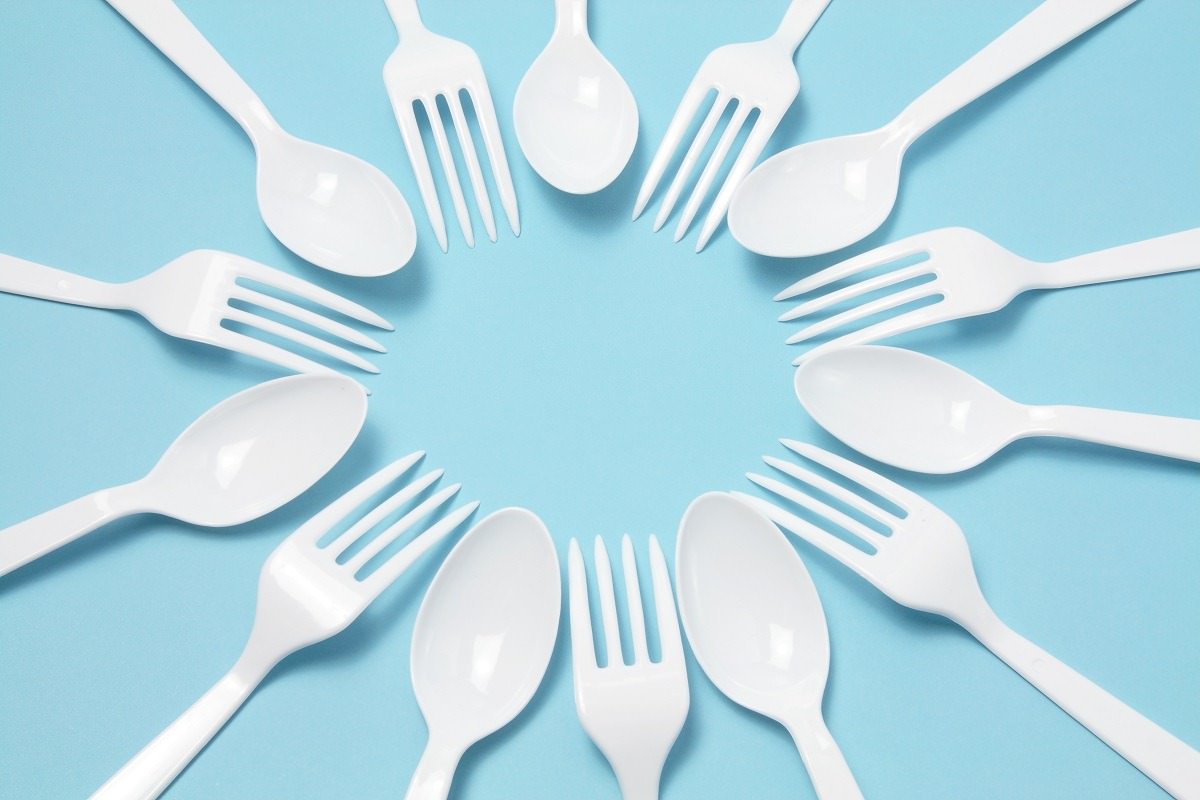[ad_1]

Plastic utensils usually are not recyclable. In the event you’re contemplating shopping for any “disposable” with the intention of recycling it, it’s higher to decide on a reusable or compostable various. It’s time to maneuver on from plastic utensils, plates, cups, and bowls — and in some nations, provinces, and states, single use plastics are being phased out by means of new bans on promoting them.
However let’s assume for a minute that you’ve plastic utensils from take-out eating places, workplace lunch events or quite a few different situations and need to preserve them out of landfills. In concept, these utensils must be recyclable, however a number of points possible stop your native program from accepting them.
1. Inconsistent Supplies
In an ideal world, all plastic utensils can be constituted of the identical plastic resin, however that’s merely not the case. The vast majority of plastic utensils are manufactured from polystyrene (#6 plastic), a plastic mostly acknowledged in its expanded, foam type as Styrofoam. Different plastic utensils are manufactured from PET (#1 plastic) or polypropylene (#5 plastic), which have a bigger recycling market than polystyrene.
Sadly, particular person utensils are sometimes not labelled with a plastic resin quantity, so that you’ll haven’t any manner of figuring out which plastic you’ve got until you’ll be able to check with the unique packaging. Except your curbside program says it accepts all plastics, depart them out of the recycling bin.
2. Unorthodox Form
Plastic forks and knives can jam equipment within the MRF and are sometimes thought-about a high supply of contamination.
Supplies restoration services (MRFs) are designed to take all the things out of your blue bin and type it by materials, then bale and ship it off to a recycling firm. Baling is way simpler for supplies that collapse, like aluminum cans, plastic bottles and newspaper.
3. The China Conundrum
Plastic utensils are labeled as inflexible plastics, similar to clamshell packaging, blister packs and yogurt containers. Till 2018, most U.S. curbside packages exported scrap plastics, like utensils and cups, to China. Nevertheless, China cracked down on the import of plastics, which modified inflexible plastic recycling throughout the US.
Substitute Single-Use With Compostable and Reusable Options
The best method to keep away from in search of recycling options is to vary your procuring habits. Search for compostable fiber-based utensils and tableware, or go for reusable metallic utensils and take the time to scrub them as an alternative of spending the time looking for recycling — apart from they are going to carry out higher than plastic forks on your company. Contemplate these alternate options.
Earth911 groups up with internet affiliate marketing companions to assist fund our Recycling Listing. If you are going to buy an merchandise by means of one of many affiliate hyperlinks on this submit, we’ll obtain a small fee.
250-Piece Compostable Paper Plates Set with Biodegradable Cups, Spoons, and Forks, on Amazon for $24.99.
300-Piece Wood Compostable Utensils, on Amazon for $21.99.
200-Piece Matana Bamboo Utensils, on Amazon for $12.99
Begin your company on their reuse journey by sharing a reusable set of utensils at your get together. Attempt these TROUSKAIG Reusable Utensil Units, together with chipsticks, which are available in packs of 4 for $7.99.
Whether or not or not you’ll be able to recycle plastic utensils will rely in your metropolis, and there are many components that restrict the recycling market. In the event you’re shopping for plant-based cutlery pondering it may be composted, the jury remains to be out on whether or not these merchandise really break down even beneath the very best temperatures. Your greatest guess: Stick with reusable utensils.
Editor’s Word: An earlier model of this text was printed on Might 25, 2018. It was comprehensively up to date in March 2024.
[ad_2]
Source link



